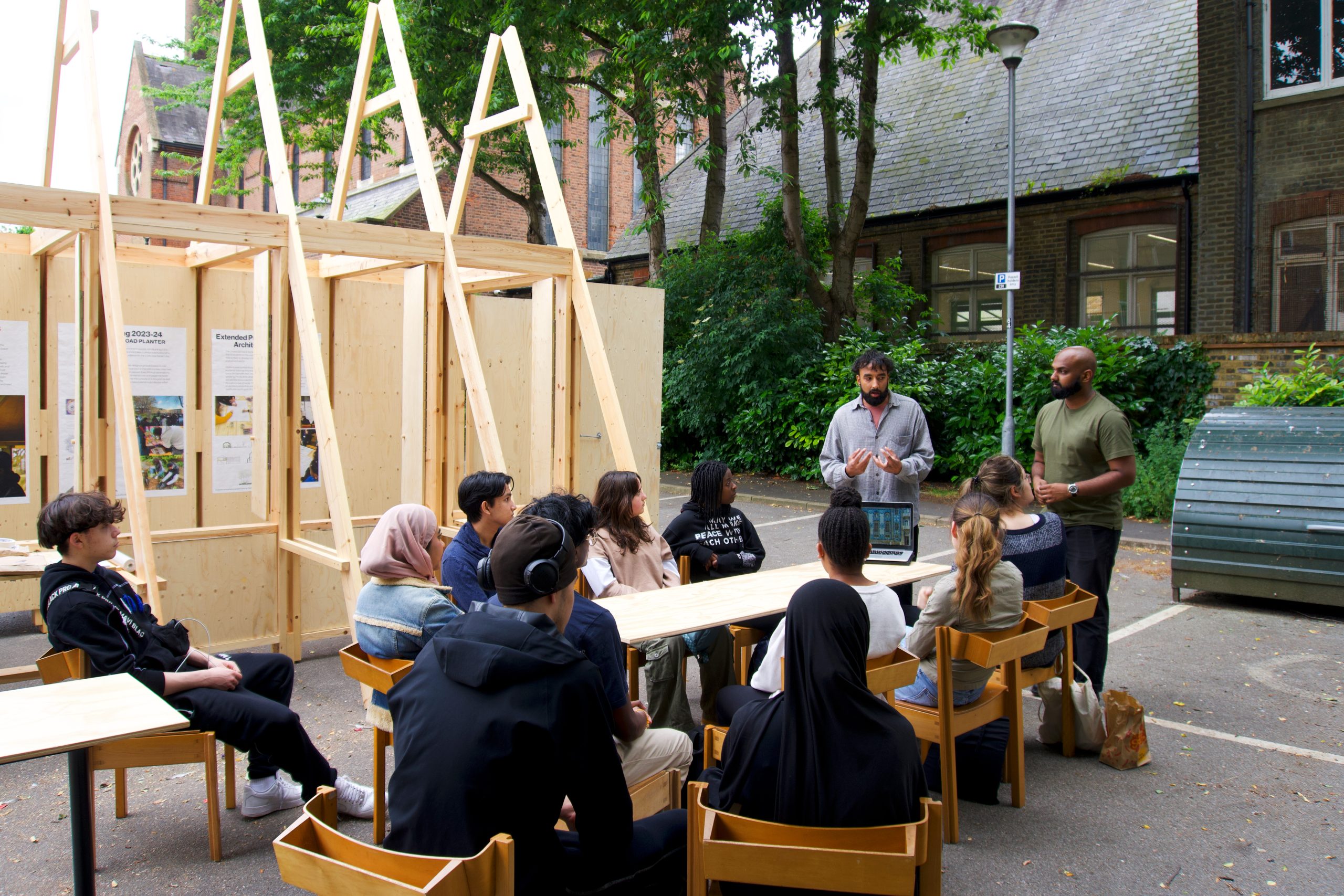Accelerate is Open City’s outreach programme and aims to help young people from underrepresented backgrounds explore careers in the built environment.
Who are you?
Accelerate, one of Open City’s education programmes, is now in its 14th year and providing London-based 16 to 18-year-olds with free opportunities to develop skills to help them pursue their journey towards a career in the built environment. Our team is made up of individuals with varied experiences across the sector but they are all passionate about inclusion, diversity and sharing knowledge.
What is the organisation’s aim?
The built environment sector suffers from a lack of diverse representation and a wide spectrum of voices. We try to combat this by providing young people from underrepresented backgrounds with the opportunity to experience the city, develop their own opinions about the physical environment that surrounds them and make informed career choices. During the course, students develop skills, portfolios, networks and friendships. We use the programme to advocate for a more sustainable, hospitable and healthy environment for people from every background to work and study in.
Advertisement

The Accelerate team at the 2024 Summer Show at the Bartlett (photo: Jazz Noble)
Are you volunteer-led?
Nope! Everyone who works for and on behalf of Accelerate is paid.
Do you partner with other organisations?
Every year, we partner with practices, who, aside from contributing financially, mentor our student groups and welcome them to the working environment. We also invite the partner organisations to join us at our Saturday workshops and speak to our students. Last year we were joined by 6a, Section of Architectural Workers (SAW), Queer Aided Design, and the mighty POoR Collective.
We also partner with universities, which allows us to expose our students to different institutions and give them guidance on alternative routes into the profession, such as apprenticeships. Former alumni are invited to join our workshops and speak about their journeys. We hope these different voices help our students feel more confident about the steps they take after school.
What has been your landmark achievement?
Many. Our students receiving two out of the three available London Neighbourhood Scholarships; having three-quarters of our annual cohort going on to study built environment-related subjects at university; and of course, having our students’ work on display at this year’s Royal Academy Summer Exhibition. Next year’s cohort will grow to 120 students (from 30 in its early days), enabling us to reach more young people.

Accelerate workshop at the Dalston Pavilion outside the London School of Architecture (photo: London School of Architecture)
What role are you filling that other outreach programmes aren’t?
We have a combination of structured mentoring alongside skills workshops rather than doing one or the other. That interplay between the two strands of the course relates well to the study and practice model of training in the industry. Our mentor practices also give students the chance to return for work experience during summer.
Advertisement
Overall, we’re not just a skills development programme but a community. We have an alumni and professional network that we hope our students can tap into when they need guidance and support as they decide what career they would like to pursue and how.
What are the biggest changes you would like to see in the industry?
The decolonisation of the architectural curriculum to subvert and challenge traditional ways of thinking in the profession. We would also like to see the routes into architecture becoming more financially feasible for students from all backgrounds. The apprenticeship route is a step in the right direction but is just the beginning. Finally, we would like to see a change in how we value our work and our workers as built environment professionals.
What advice do you give your students who are thinking of pursuing a career in the built environment?
Be curious, ask questions, challenge things. The braver you are in your journey of learning, the more enriching it will be. Becoming a built environment professional isn’t a means to an end; it’s about the journey. It also has a wide range of opportunities, from design to policy-making, so don’t be afraid to make mistakes or change your mind. Changing courses or interests is never a waste of time!
Questions answered by Siraaj Mitha, Marcela Escobar, Sahiba Chadha, Sean Galvin, Cheryl Bannerman and Kwame Lowe
 The Architects’ Journal Architecture News & Buildings
The Architects’ Journal Architecture News & Buildings





Leave a comment
or a new account to join the discussion.